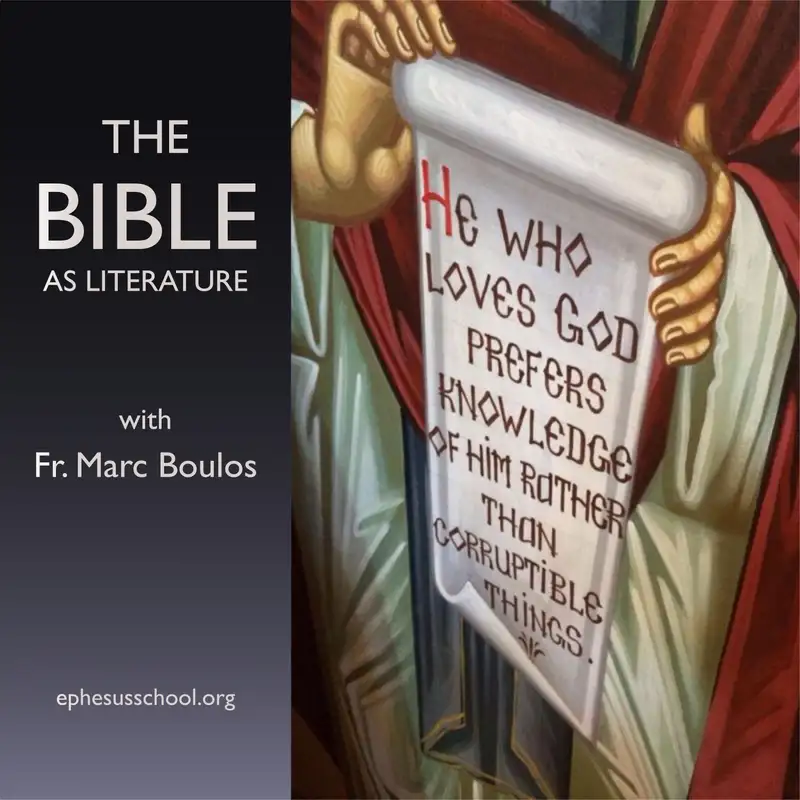
You Already Know the Answer
When a student plays teacher with an earthen vessel, there comes a moment in their imaginary dialogue when the trust they thought they had is broken. It's not broken, of course, because the dialogue itself was platonic. It's akin to the crisis of faith a student has when they hear the Bible clearly for the first time and realize the Jesus they heard about in Sunday school is not the Jesus of the gospels. This crisis of trust is a sudden realization that the point of reference for the imaginary dialogue in your head is not the point of reference for the liberating monologue that breaks through to you from the lips of the earthen vessel. Your platonic dialogue exemplifies “the blind leading the blind,” leading you into a snare inside your mind. To break free from this crisis of faith, you must move past your confession that you don't trust the earthen vessel. You must realize the truth, namely, that it is the Torah that you do not trust. You trust in yourself and your construct of the blind leading the blind. You value the comfort of blindness more than the teaching of God. So, Habibi, you have to make a choice. The comfort of the snare and the pit, the blue pill, or the difficulty of the painful thing you don't trust, the red pill, which comes to you through the earthen vessel, the bitter delivery mechanism of God's monologue.
The problem, of course, is that the red pill shares nothing in common with everything about you.
You can't find one book in your library, one stance in any corner of your broken premises that shares anything in fellowship with the red pill. Every time it is offered, it seems wrong and untrustworthy—the red pill, not the vessel, or is it the pill? Can you even decide which one you don't trust?
This week, I discuss Luke 6:41-42.
Show Notes
ט-ר-ף (ṭet-resh-fe)
טָרָף (ṭaraf) “fresh-plucked” aligns to κάρφος “dry stalk” and is the only such alignment in the Septuagint. It is typically (weirdly?) translated as “speck” or “mote” by colonial scholars.
“The dove came to him toward evening, and behold, in her beak was a (ṭaraf) freshly picked olive leaf. So Noah knew that the water had subsided from the earth.” (Genesis 8:11)“Why do you look at the (κάρφος) speck (dry stalk) that is in your brother’s eye, but do not notice the log that is in your own eye?” (Luke 6:41)
Also, κάρφος does not appear in Paul’s letters, only in Matthew 7:3 and Luke 6:41.
طَرَفَ (ṭarafa) in Arabic can mean “to tear” or “to take a portion.”
طُرْفَة (ṭurfa) can refer to something that is torn off or a fragment, and in some dialects, it may mean something rare or unique.
ק-ו-ר (qof-waw-resh)
The triliteral root of (qorah), which typically functions as “beam,” “rafter,” or “timberwork,” and is associated with houses and walls. It aligns with the Greek, δοκός (beam), clumsily translated as “log” by colonial/neoliberal scholars attempting to make sense of what they perceive as “oriental” hyperbole.
Combining “function” and Tarazi’s “itinerant word” methodology, we learn instead that the word קֹרָה (qorah) usually refers to the construction of houses and, finally, the Temple of Solomon. (1 Kings 7:2)
“The beams (קֹרוֹת, qorot) of our houses are cedars, our rafters, cypresses.” (Song of Solomon 1:17)★ Support this podcast on Patreon ★
